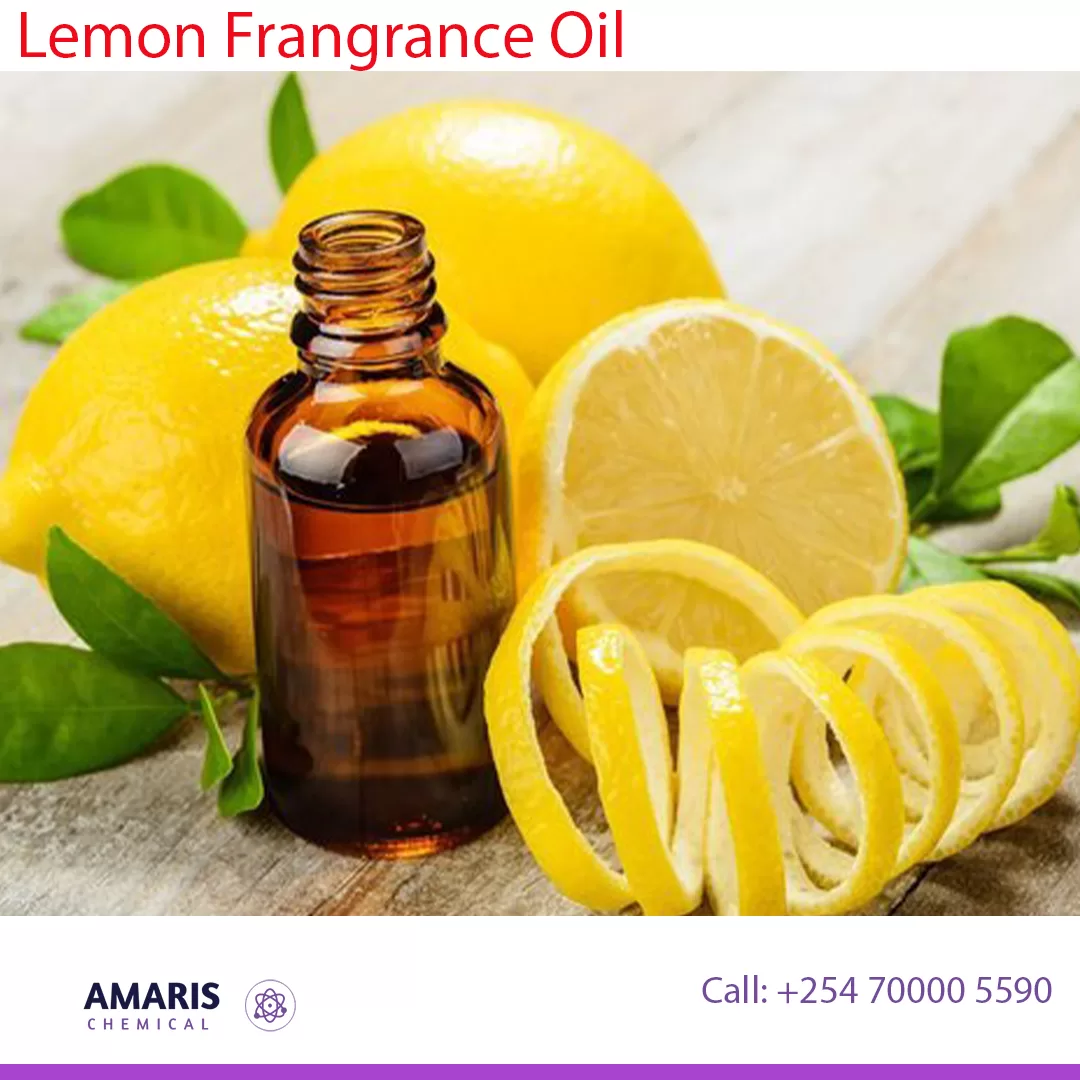Lemon Fragrance Oil 5kg
Whatsapp Order
Lemon oil fragrance for manufacturing refers to a scented oil derived from the peel of lemons through a process known as cold-press extraction or steam distillation. This essential oil captures the distinctive and refreshing aroma of fresh lemons, characterized by its citrusy, zesty, and tangy notes. In manufacturing, lemon oil fragrance is often utilized as a versatile and aromatic ingredient in various products such as cosmetics, soaps, candles, cleaning agents, and air fresheners, imparting a clean and invigorating scent. Its natural and vibrant fragrance can enhance the overall olfactory experience of the end product, providing a sense of freshness and cleanliness. Additionally, lemon oil is known for its potential mood-boosting properties, contributing to a positive and energizing ambiance in the manufactured goods.
Compare
Lemon oil fragrance is a versatile and popular scent that is used in a variety of products during manufacturing. Lemon oil’s fresh and uplifting fragrance is often chosen for products where a clean and invigorating scent is desired. It not only imparts a pleasant aroma but also contributes to the overall sensory experience and may have additional benefits, such as mood enhancement and a sense of cleanliness. Some of the products that are most likely to incorporate lemon oil fragrance include:
- Cosmetics and Personal Care Products:
- Lotions
- Creams
- Shampoos
- Conditioners
- Body washes
- Perfumes
- Deodorants
- Cleaning Products:
- Surface cleaners
- Dishwashing detergents
- Laundry detergents
- Disinfectants
- Air fresheners
- Candles:
- Scented candles
- Aromatherapy candles
- Soaps:
- Hand soaps
- Bath soaps
- Liquid soaps
- Air Fresheners:
- Room sprays
- Reed diffusers
- Plug-in air fresheners
- Aromatherapy Products:
- Essential oil blends
- Diffuser oils
- Food and Beverage:
- Some food and beverage products may use lemon oil as a flavoring or fragrance component.
- Pharmaceuticals:
- Some medicinal products and pharmaceuticals may use lemon oil for its aromatic properties.
- Home and Linen Products:
- Fabric softeners
- Linen sprays
- Potpourri
- Pet Care Products:
- Pet shampoos
- Pet deodorizers
While lemon oil fragrance is generally considered safe for use, it’s important to observe some safety precautions to ensure responsible and proper handling. Here are some safety considerations when using lemon oil fragrance:
- Skin Sensitivity:
- Lemon oil can cause skin irritation or sensitization in some individuals. Always perform a patch test before applying directly to the skin, and dilute it appropriately in carrier oils or other formulations.
- Photosensitivity:
- Citrus oils, including lemon oil, can make the skin more sensitive to sunlight. Avoid exposure to direct sunlight or ultraviolet (UV) rays after applying lemon oil to the skin. This is particularly important if using it in leave-on products like lotions.
- Eye Irritation:
- Avoid contact with the eyes, as lemon oil may cause irritation. If accidental contact occurs, rinse the eyes thoroughly with water.
- Ingestion:
- Lemon oil is generally recognized as safe for consumption in small quantities, but it’s crucial to use food-grade, properly labeled oils if intending to ingest. Exercise caution, and consult with a healthcare professional if you have any concerns or conditions.
- Dilution:
- When using lemon oil topically, dilute it appropriately in a carrier oil to reduce the risk of skin irritation. The recommended dilution ratio can vary depending on the specific application, so follow guidelines or consult with a knowledgeable source.
- Pregnancy and Children:
- Pregnant women and young children should use essential oils with caution. Consult with a healthcare professional before using lemon oil, especially in concentrated forms.
- Allergies:
- Individuals with known allergies to citrus fruits should exercise caution when using lemon oil. If allergic reactions occur, discontinue use immediately.
- Storage:
- Store lemon oil in a cool, dark place, away from direct sunlight and heat. Keep it out of reach of children and pets.
- Quality and Purity:
- Ensure that you are using high-quality, pure lemon oil without synthetic additives. Read labels carefully, and purchase from reputable suppliers.
- Ventilation:
- When using lemon oil in larger quantities or in confined spaces, ensure proper ventilation to prevent the inhalation of concentrated vapors.
- Compatibility:
When incorporating lemon oil into formulations, ensure compatibility with other ingredients. Some substances may react unfavorably with citrus oils.





